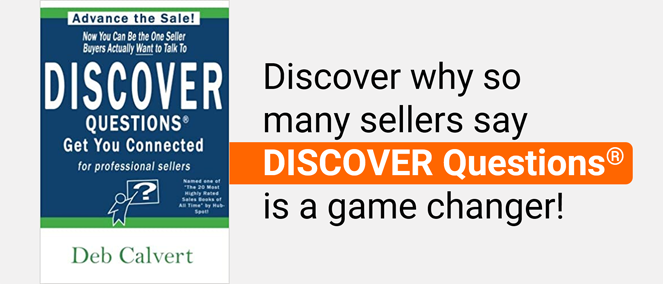Sales Differentiation Is Easy When You Ask Purposeful Questions
It’s been said that in sales differentiation, asking questions is an art, an appealing expression requiring craftsmanship and finesse. It’s also been said that asking questions is a science, a systematic process requiring knowledge gained through observation and experimentation.
In selling, there are two schools of thought when it comes to using questions as a way to connect with buyers and advance sales to a close. You can find numerous books and training courses on this subject, and every one of them will lean one way or the other.
Sales Differentiation: Is Asking Questions a Science or an Art?
The “questions as science” resources provide formulaic questionnaires. Sellers are taught to ask scripted questions in a predetermined order. For buyers, this often feels like a survey. It seems one-sided, more diagnostic than dialogic. For sellers, the aim of these questions is often not clear. As a result, natural follow-up questions are not asked. Sellers may not know how to use the information gathered in preparing appropriate solutions for their buyers.
The “questions as art” resources are too conceptual and abstract for many sellers to grasp. Books filled with sample questions but no context for them can be confusing.
Sellers (and, in some cases, entire industries) adopt the school best suited to their own sales processes and/or personalities. In technical fields and complex selling, you usually find a scientific process for asking questions. With more frequent encounters between buyers and sellers, including most B2C sales, there’s a higher likelihood questions are seen as an art form with companion training related to psychology, neuroscience, storytelling and the like.
The problem with selecting one over the other? You are missing out on the full, varied and rich information that a mix of questions yields. Your technique limits you. Process drives certain types of questions. Expression drives different types.
When it comes to asking questions in selling, the versatility to use a full range of questions will give you a complete set of tools. As a scientist, you may not need a paintbrush all that often. As an artist, you may not use a microscope every day. But equipping yourself with tools that diversify your questions will give you much more to work with.
The Correct Answer? DISCOVER Questions
The acronym DISCOVER stands for eight distinct purposes of asking questions. This model was developed by observing sales calls and interviewing buyers and sellers for over 20 years. Check to see which purposes you may be missing, and then you can fill your toolbox for art or science as needed.
Data Questions: for getting factual, objective information
Issue Questions: for probing dissatisfaction
Solutions Questions: for collaborating to co-create solutions
Consequence Questions: for revealing risks and concerns
Outcome Questions: for understanding hopes, dreams, plans, goals and visions
Value Questions: for prioritizing needs and motivating factors
Example Questions: for drawing comparisons and imagining possibilities
Rationale Questions: for understanding how decisions will be made


